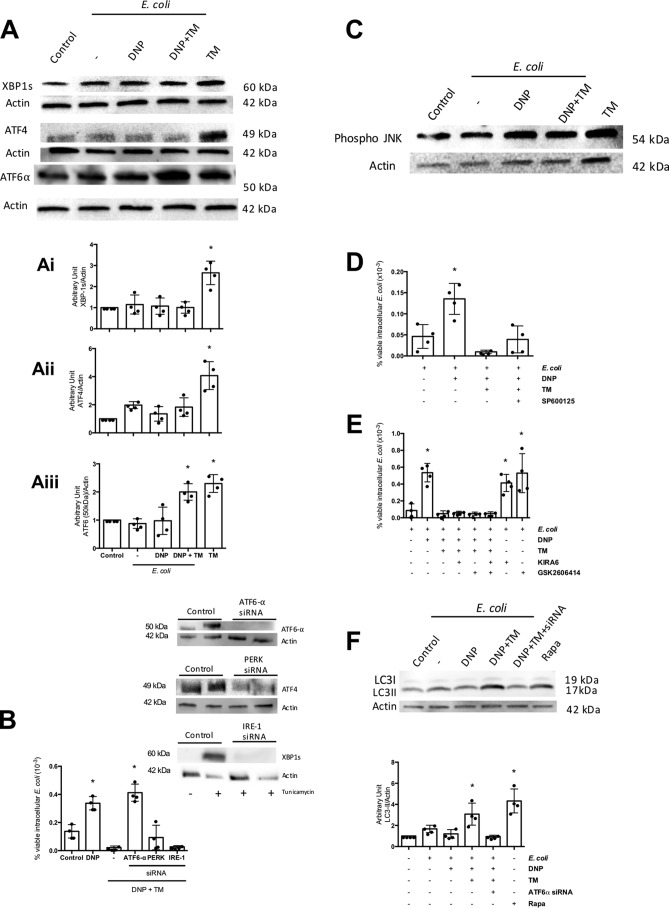Figure 5.
ATF-6 mediates inhibition of the DNP effect. A, T84 cells treated with E. coli + DNP + tunicamycin show increased expression of ATF6 but not XBP1 or ATF4 (representative immunoblot; 16-h treatments; densitometry). B, treatment with ATF6α, but not ATF4 or XBP1, siRNA (inset, immunoblots showing siRNA knockdown of protein) prevents the ability of TM (10 μg/ml) to ablate the DNP (0.1 mm)-induced internalization of viable E. coli (106 cfu, strain HB101; 16 h) (one representative experiment of two experiments). C, immunoblotting of whole-cell extracts (representative of three blots) reveals increased phosphorylated JNK in TM + DNP-, but not E. coli only, treated T84 epithelial cells. D, co-treatment with the selective pharmacological inhibitor of JNK, SP600125 (40 nm), does not affect the TM suppression of DNP-evoked increases in viable intracellular E. coli in T84 epithelial cells (16 h). E, co-treatment with the selective IRE1 inhibitor (KIRA6, 600 nm) or PERK inhibitor (GSK2606414, 0.4 nm) did not affect DNP (0.1 mm, 16 h)-induced internalization of E. coli into T84 cells. F, increased autophagy as gauged by LC3-II protein expression observed in E. coli + DNP + TM-treated cells was not observed in T84 epithelia treated with siRNA against ATF6α. The inducer of autophagy, rapamycin (Rapa, 100 nm) is shown as a positive control (mean ± S.D.; *, p < 0.05 compared with control).

